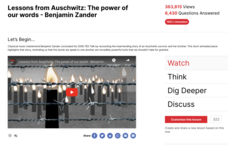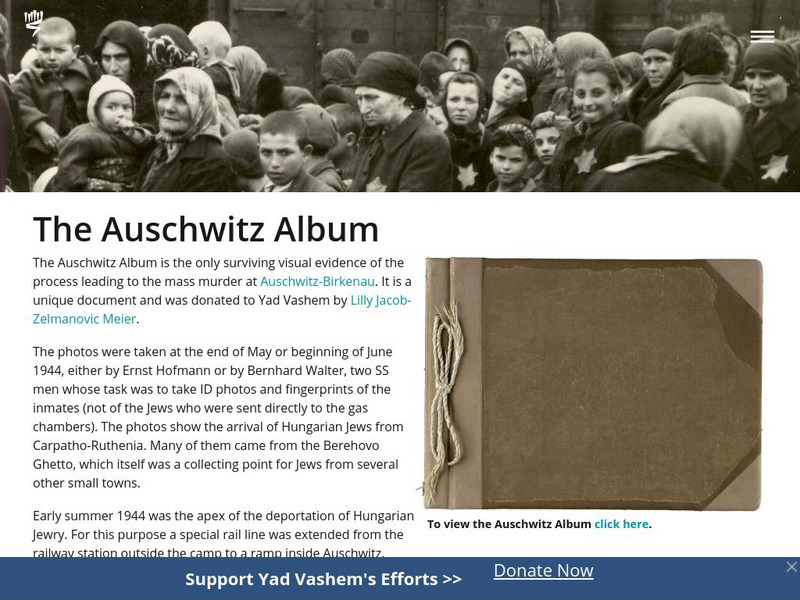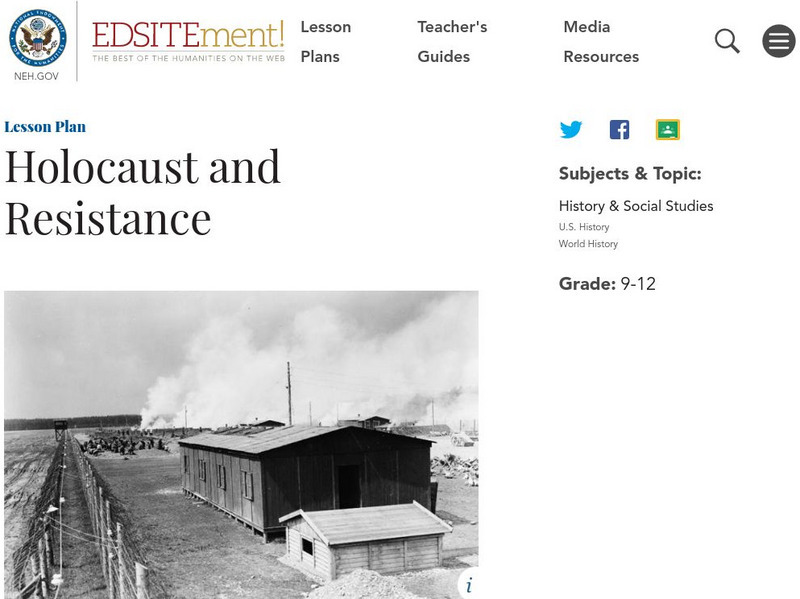TED-Ed
Lessons from Auschwitz: The Power of Our Words
Some words are best left unspoken. Words matter, according to Benjamin Zander, conductor, teacher, and lecturer. To illustrate his point, Zander recounts a story told to him by a survivor of Auschwitz. As a result of her experience this...
US Holocaust Memorial Museum
U.s. Holocaust Memorial Museum: Buchenwald
A description of the concentration camp system at Buchenwald, and the varied types of prisoners who were held there before and during World War II.
US Holocaust Memorial Museum
U.s. Holocaust Memorial Museum: Belzec
A description of the Belzec concentration camp in Poland, run by the Nazis between 1941 and 1943.
US Holocaust Memorial Museum
U.s. Holocaust Memorial Museum: Treblinka
A description of the Nazi development and use of the extermination camp at Treblinka in Poland during World War II.
US Holocaust Memorial Museum
U.s. Holocaust Memorial Museum: Jasenovac
Article about the concentration camps established by the Nazis in the area around Jasenovac in Croatia, and their use in eliminating political and religious opponents, as well as Jews shipped in from other places in Eastern Europe.
US Holocaust Memorial Museum
U.s. Holocaust Memorial Museum: Ohrdruf
Article about the concentration camp at Ohrdruf, a subcamp of Buchenwald. Ohrdruf was the first camp to be liberated by the Allied forces, in April 1945.
US Holocaust Memorial Museum
U.s. Holocaust Memorial Museum: Auschwitz Through the Lens of the Ss
A collection of photographs taken by an SS officer, Karl Hocker, who was stationed at the Auschwitz concentration camp in 1944. Use the links on the page to go to related articles and the photographs
US Holocaust Memorial Museum
Ushmm: Holocaust Encyclopedia: Deportation to Killing Centers
Text details the planned methods of moving Holocaust victims from ghettos and labor camps to extermination camps during World War II.
Yad Vashem, The World Holocaust Remembrance Center
Yad Vashem: The Auschwitz Album
An online exhibit of surviving visual evidence of what occurred at Auschwitz-Birkenau. Photos were taken by two SS men whose task was to take ID photos and fingerprints of the inmates.
American-Israeli Cooperative Enterprise
Jewish Virtual Library: Auschwitz Birkenau
The Jewish Virtual Library offers a detailed page explaining all aspects of the Auschwitz-Birkenau concentration/death camp. Contains pictures, personal accounts, and the history of what happened there.
The History Place
The History Place: Statistics of the Holocaust
This page from The History Place has a chart with the number of Jewish people killed in the Holocaust. Nearly 6 million Jewish people were murdered. This site is disturbing its apparent accuracy of the Jewish slaughter.
The History Place
The History Place: Auschwitz Today
The History Place provides a virtual slide show of photos taken from a walking tour of the Auschwitz Nazi concentration camp.
Other
Holocaust Education & Archive Research Team: Chelmno Death Camp
An article on the death camp Chemnlo, which was located in Poland and established in order to exterminate the Jewish population of the Warthegau territory annexed to Nazi Germany. Highlights important dates in the camp's history and...
American-Israeli Cooperative Enterprise
Jewish Virtual Library: Drancy Concentration Camp
Describes what the Drancy concentration/death camp in France was like during WWII.
National Endowment for the Humanities
Neh: Edsit Ement: Holocaust and Resistance
"In this lesson, students reflect on the Holocaust from the point of view of those who actively resisted Nazi persecution." "includes images which should be reviewed in advance for their potential impact on students."








